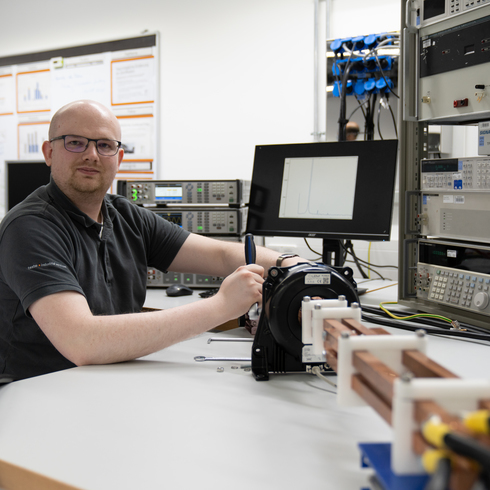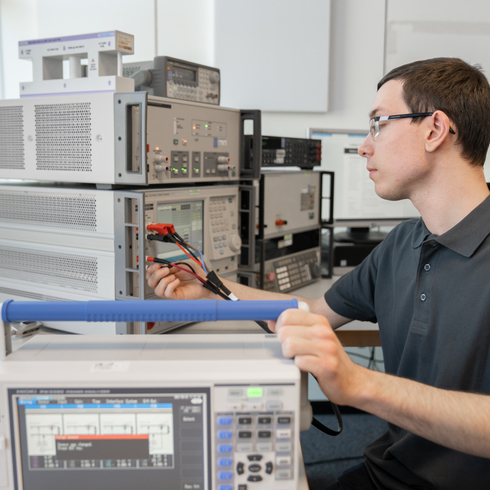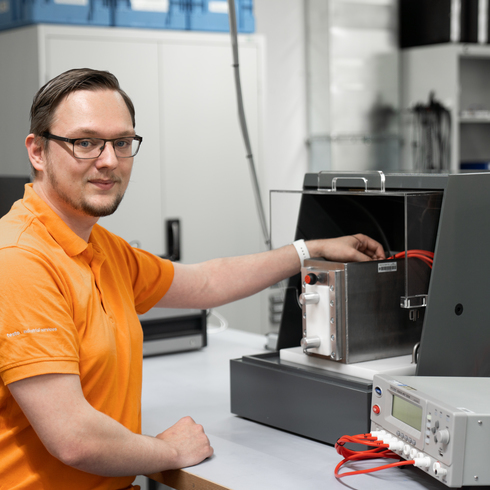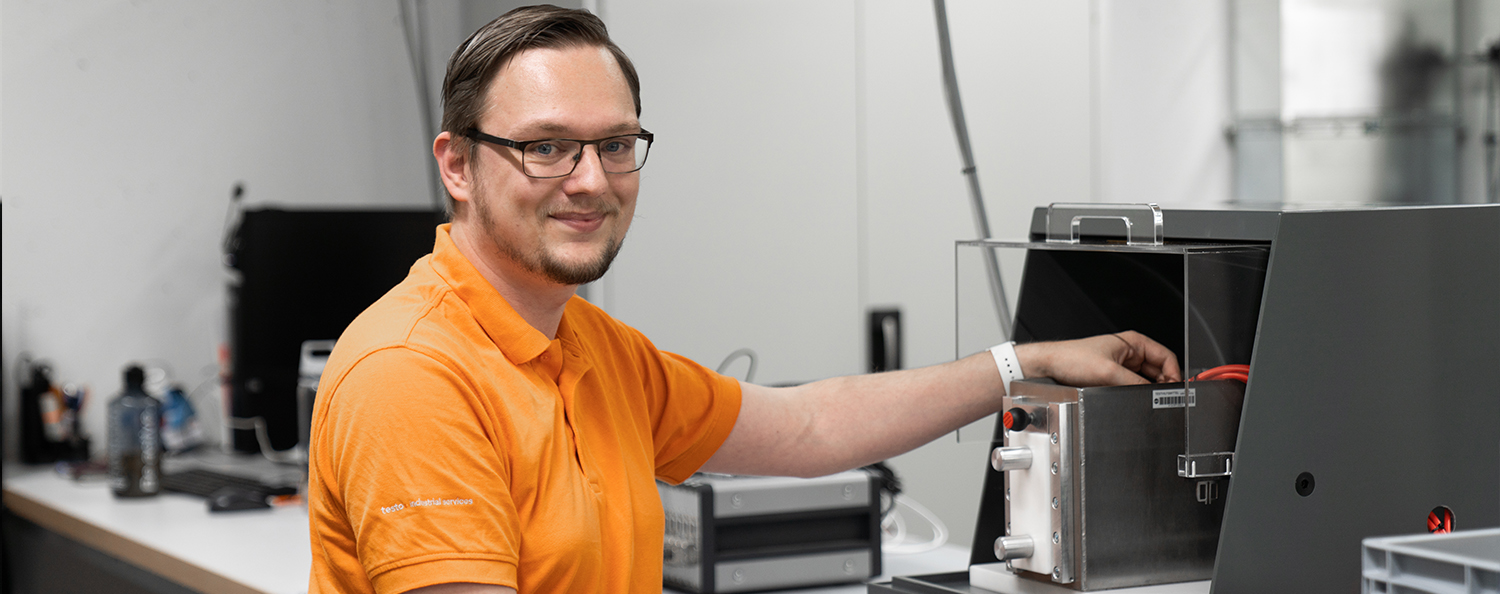Electric calibration solutions for electromobility
From current transformers for measuring large motor currents to battery test systems – e-mobility demands new quality standards. Testo Industrial Services provides the appropriate DAkkS-accredited calibration and testing solutions.
New concepts and developments in the field of e-mobility are changing the requirements and demand for calibrating electrical measuring devices. Whether it's motor currents measured with current transformers or batteries tested with modern systems – Testo Industrial Services GmbH has expanded its lab with accredited calibration procedures for electrical quantities, specifically tailored to the needs of e-mobility.
Calibration of Your Current Transformers
To supply the high energy levels required for the dynamic movement of an electric vehicle, large currents are needed – both during operation and charging. Current transformers enable these currents to be converted into usable electrical signals (proportional current or voltage signals) with minimal loss.

At our specially developed test station for transformers, we perform calibrations for your current transformers. We offer ISO and DAkkS-accredited calibrations in the following ranges:
- DC: up to 4000 A
- AC:
- 1 A to 120 A at 40 Hz to 2 kHz
- >120 A to 600 A at 40 Hz to 400 Hz
- >600 A to 1000 A at 40 Hz to 65 Hz
We also calibrate non-sinusoidal, dynamic signal forms using a sampling method. Our custom-built setup, made of 40 kg of pure copper with defined wiring, minimizes interference and increases current-carrying capacity. The setup is easy to dismantle, allowing for quick integration of the test object and optimized calibration flow.
Calibration of Power Meters and Analyzers
Calibration is performed directly using three specially equipped stations with high-precision calibrators. DAkkS calibrations are available in the following ranges:

- DC voltage: 10 V to 1100 V
- DC current: 0 to 1000 A at max. 1000 kWs
- AC voltage: 0 to 1000 V at max. 1 MHz
- AC current: 0 to 100 A at max. 10 kHz
Active, reactive, and apparent power: 50 µW/µVar/µVA to 80 kW/kVar/kVA at max. 10 kHz
All measurements are traceable to our in-house reference lab.
Battery Test Systems
High-voltage batteries are the heart of an electric vehicle. Extensive testing during development and beyond is essential. These high-precision systems include safety features such as overvoltage/overcurrent protection and external parameter detection. Regular calibration of current, voltage, and resistance values (AC and DC) is essential.
We calibrate your battery test systems and can also analyze dynamic parameters such as charging time and signal curves. Additionally, we are expanding our accreditation to include AC resistance in the milliohm range.
HV Testing
With the trend toward 800 V technology, safety requirements for high-voltage components in EVs are increasing. To prevent risks like voltage breakdowns due to damaged insulation or connectors, regular testing of HV measuring boxes and adapter cable sets is essential.

We offer dielectric strength/insulation testing in our accredited lab according to DIN EN IEC 61010-031:2024-05 using a water bath. Voltage ranges up to 5 kV are supported. Insulation tests can be performed on modules, adapters, cables, and test equipment.
Additional Electric Calibration Solutions
We offer even more: Our DAkkS-accredited electrical lab is tailored to the needs of e-mobility and guarantees maximum precision and reliability.
Our portfolio also includes:
- Signal Amplifiers and Modules: Custom calibration of current, voltage, temperature, and frequency – even under variable ambient conditions.
- Current Shunts: Precise DAkkS calibration in AC and DC up to 1000 A, frequency up to 10 kHz.
- Energy and Current Meters: High-accuracy calibration per phase up to 100 A, 1000 V, and 400 Hz.
- And much more.
Request a Quote
Would you like a non-binding quote for your electrical measuring devices? Request one now!
